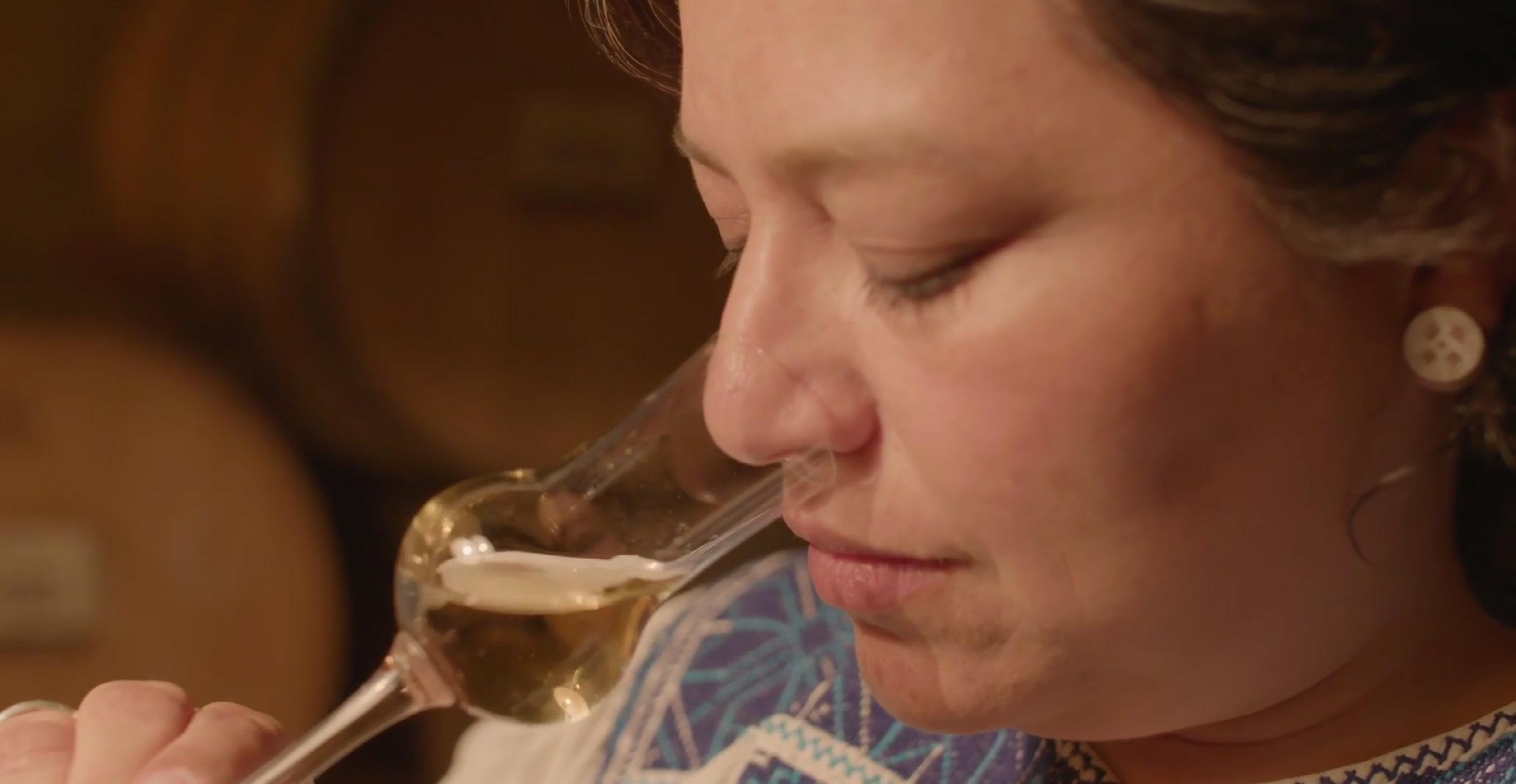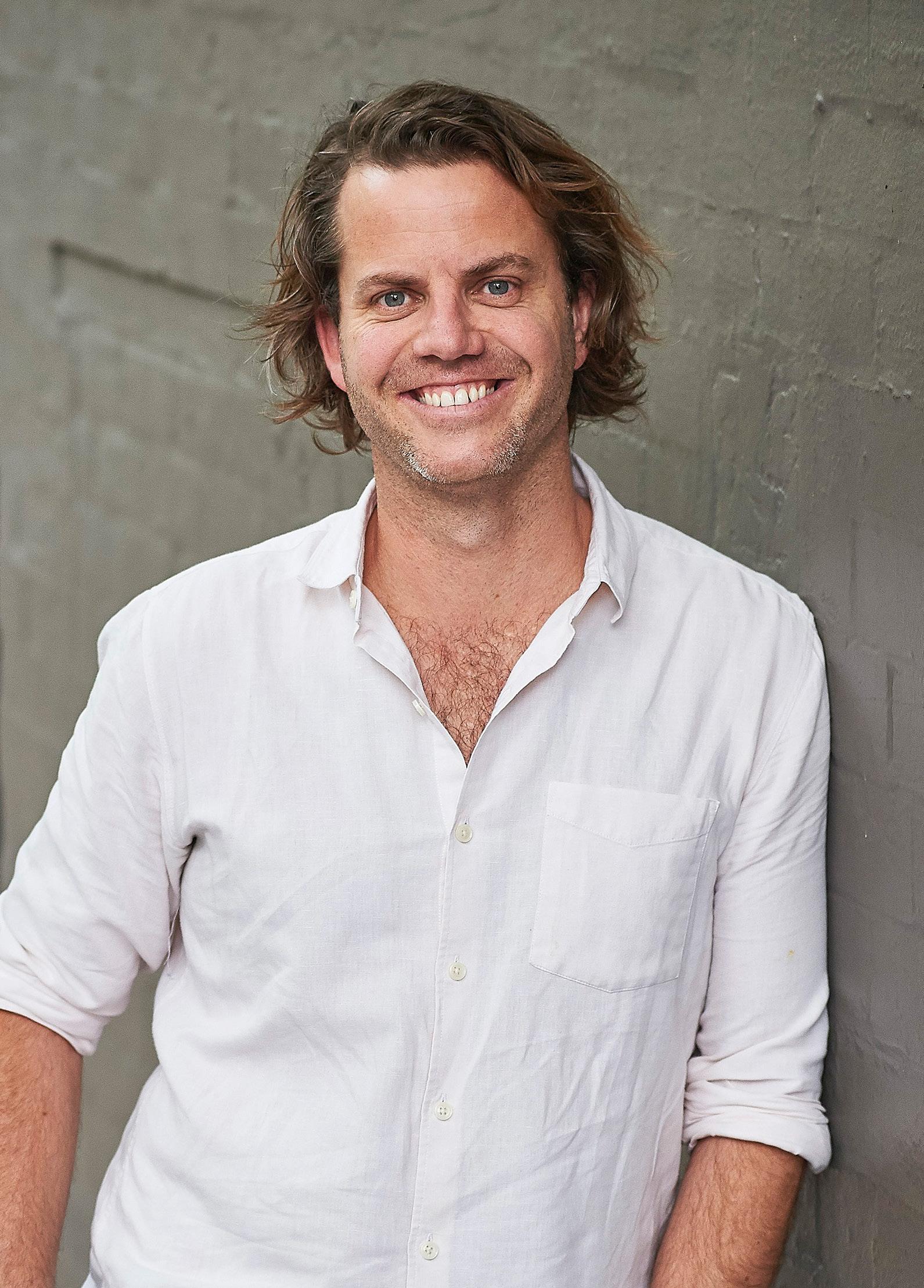
8 minute read
PROFILE // Nic Wong
Nic Wong
CicciaBella Group Culinary Director Nic Wong has learned a thing or two over his 20 years of cooking.
WORDS Madeline Woolway
WHEN NIC WONG left school to become an apprentice chef, he didn’t have a specific goal in mind beyond escaping the classroom. In his first kitchen, Wong discovered a love of the restaurant industry — not because of cooking, but because of hospitality.
Almost 20 years later, the chef has segued his talent for cooking into a career focused on building restaurants, from menu development to training.

“I guess I fell in love with the community of it,” says Wong. “When you start working anywhere, especially when you’re young, you almost gain another family; you go out together, you eat together after work, you spend the whole day together.” The sense of community, as well as the chance to provide guests with an experience, was the main motivation early on. “I think that was the most important thing, especially when I was younger,” says Wong. “To be perfectly honest, I fell into cooking because I didn’t want to go to school anymore.”
Working in the kitchen of a neighbourhood restaurant in Castle Hill at the age of 16, Wong was more preoccupied with having fun than establishing a career. The drive came later, when a chain of events landed him in Kylie Kwong’s kitchen as the most junior member of the Billy Kwong team.

Selected by a TAFE teacher to participate in Fonterra’s Proud to be a Chef program, Wong was introduced to some of the industry’s most lauded figureheads, including Steve Manfredi and Christine Manfield, as well as a new way of thinking. “It put me in a different mindset,” says Wong. “And it gave me a little self confidence, which I needed at the time.” It also showed Wong that he didn’t have to just ‘plod along’. Instead, he could make a career out of kitchen life. Buoyed by the competition, Wong knocked on Billy Kwong’s door and asked for a job. “They didn’t have one, but they gave me a trial and then hired me,” he says.
Wong was catapulted into what he still refers to as one of the most incredible kitchens Australia has seen. “It was the original site in Surry Hills on Crown Street,” he remembers. “It was super small. The kitchen was very tight, but it just had this energy … it was such a force. The team was incredible. We all know we’ll never get another team like that again.”
At the tail end of his apprenticeship, a 20-year-old Wong was instilled with a new sense of direction. “I had an amazing support system when I started there,” he says. “Hamish Ingham was my head chef, O Tama Carey was sous chef and Mat Lindsay and James Parry were chef de parties. There were others, but that was the core team, and they’re the people I really learned off. I cherish that time a lot because that team was pretty amazing.”
The time cemented an approach Wong takes to this day, particularly when it comes to professional development. It shows the importance, too, of surrounding yourself with the right people. In many ways, the experience showed there’s more than one kind of mentor. From Kwong — who he calls a force to be reckoned with — Wong learned patience, while he found camaraderie in a friendship with Lindsay.
“Mat really took me under his wing and I learned so many things off him,” says Wong. “I really looked up to him and I still look up to him to this day, but he’s one of my best friends.”
By modelling patience, Kwong and her team ingrained a sense of generosity when it came to time. “I was the only apprentice there and the team were more than happy to give me the time to push me forward and help me,” says Wong. “Once I got a little bit older and started running my own kitchens and being in charge, I started to respect that a lot more and see the value in it.”
In fact, the current climate makes training and mentorship even more critical for chefs of all levels. “Prior to COVID and the bushfires, there was a big bump up in wages and salaries,” says Wong. “It’s a business at the end of the day, so you want some kind of return; you don’t want to waste money on training, you need to have someone who knows how to train.”
The impetus, then, is on management to create a working environment that prioritises training and engaging chefs in a meaningful way. That’s the purpose of Wong’s role as culinary director of Maurice Terzini’s CicciaBella Group.

“It’s a big title,” says Wong. “I came across to Icebergs Group in November last year in this development role, because, [after] doing brand development for Apollo and Cho Cho San, that’s what I enjoy. I slipped into it and enjoyed that focus on everything: the food, the logistics and strengthening the brand.”
The pandemic has seen a number of changes. For one, Terzini’s Icebergs Group is now split in two: There’s Icebergs Dining Room and Bar and CicciBella Group. Wong was hired to run the kitchen team as well as work on menu development and brand building. But the chaos of Christmas, followed by bushfires and COVID, has meant evolving to suit the climate.
“I was realistic about it … we shouldn’t have this role right now because there are more important things,” says Wong. “As a restaurant brand, it’s about survival at the moment. Right now, I’m a head chef.
We have to do all that we can to help our business survive. I do the dishes; I’m not too good to take the rubbish out.”


That doesn’t mean there’s no place for titles like culinary director, though. CicciaBella is going ahead with its expansion, launching a second location in Parramatta this month. “When I took over
CicciaBella Bondi, it was like opening a new restaurant,” says Wong. “It was really hard for morale knowing we could only have 20 people and the limited amount we could make.”
Wong’s role is to guide the team through difficult transitions, and it’s one he relishes. “It made me realise that’s what I love — the challenge … that ‘up against the wall’ kind of mentality,” says Wong. “It’s funny because I said that and Maurice said it to me. He likes it as well — that’s our connection.”
Wong suspects the Parramatta opening will be just as challenging. “It’s opening as a precinct, [so] everyone kind of needs to open in sync for it to work,” he says.
Logistics aside, Wong still loves cooking. The chef acknowledges Italian cuisine might not be his strong suit, but he doesn’t see that as a problem. He’d never cooked Greek before hitting the pans at Jonathan Barthelmess’ restaurants or tried his hand at Argentinian tapas before starting at Porteño group’s Bodega.
“I know Italian is probably not my strength, but that’s why I enjoy working with Maurice on this,” says Wong. “We want to do good, approachable food that people want to come back for. We’re not trying to get three hats. We know the brand and where it needs to sit in the market. It just comes back to [the fact] I like being hospitable.”

There’s often a debate over whether young chefs should head overseas to stage or spend time immersing themselves in a new cuisine. Wong loves to travel, but thinks it’s possible to become a wellrounded chef here in Australia. “You can learn so many different styles from some of the best as well,” he says. “We’ve got so many amazing cooks and ingredients at our doorstep.”
A few weeks ago, Wong placed an ad for chefs and received a phenomenal response. “I ran the ad for 24 hours and got 100 applications,” he says. “That hasn’t happened in hospitality for a long time.”
At first, Wong lamented the situation — it’s an indicator of how tough things are right now. But there’s also an opportunity. Along with a few friends in the industry, Wong has talked about a possible silver lining to this period of uncertainty.

“In the next year, all those young chefs who want to go and work at Noma or Alinea will stay here and develop. Maybe it’s for the better,” he says. “Training is everything, from the day a new person walks in, how they are greeted and how much time you spend with them can set in for a lifetime.”
If anything, now is the time to have chefs in development who are dedicated to looking after up-and-comers and ensuring a high degree of training and experience right here in Australia.
“100 per cent,” says Wong. “I’m very much an advocate for that.” ■








